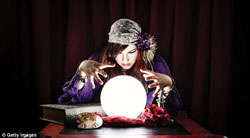A bakery opens at the corner of Main Street and Parker Avenue. Their storefront shows promise: an alluring design, an appealing name, an assurance of quality; their personnel show initiative, a friendly countenance, a “how’s it going” attitude, the enthusiasm of a new beginning.
But it seems that as soon as the ribbon is cut, the problems emerge: inconvenient hours of operation, unaffordable prices, disappointing products.
Just as hurriedly as the owner opened, they scramble to close. After the “going out of business” and “everything must go” announcements are torn from the windows, another will embark on the same journey, feeding into a cycle of trial and error, of brief success and ultimate failure, of rolling the dice and losing it all, over and over again, with no foreseeable end.
Then it does. After decades of tossing a variety of ideas to the wall, from bakery to deli to salon to shoe shiner, something finally sticks. And it’s not due to business acumen, networking or even dumb luck, it’s the ability to foresee that end, and any end for that matter.
Or, at least, that’s what they tell you.
Psychic readings and their success are perhaps one of the most elusive of modern businesses. There never seems to be a shortage of them in any given area and, regardless of the economic climate, they seem to stick around.
There lacks any practical reason for the phenomenon, since psychics aren’t necessary for survival or sustenance, and don’t possess any expertise that can be measured by a respected degree or education in the field that is difficult to achieve.
Anyone can look up how to read your palm and can just as easily sign up for daily horoscope emails. So what’s the big deal?
Apparently there’s more to being a psychic than assuming oversized jewelry, renting the dingiest building available and adorning it with dream catchers and putrid incense.
According to Alexis Manzo, a senior anthropology and elementary education student, the purpose of her visit to Psychic Readings by Sharon in Long Branch, NJ was to “find solace [and] relief.”
It wasn’t so much that she wanted to learn about the intimate, seemingly unpredictable details of her future; it was more to be offered a hopeful forecast that assuaged present anxieties.
Manzo was not disappointed. “After my reading I felt relieved and hopeful for the future…I think I used this reading as more of a therapy session to bring me back down to earth,” she explained.
Not only that, but she was surprised to find that the information the psychic gave her about herself was “strikingly accurate.”
Brenna Sadowski, a freshman social work and fine arts student who has been to a few different psychics, was similarly impressed with her readings.
They “related to [her] life,” especially when one psychic “asked if [she] was going to study social work and…had no way of knowing [she] was.”
Sadowski has even gone so far as to follow the psychic’s advice, but not before ignoring the warning. “I have been told to avoid certain types of people and I haven’t listened, when it turns out I should have. After that happened a few times, I realized I should probably do what a psychic says.”
Judy Nye, Associate Vice Provost for Academic Foundations, however, remains skeptical of the trend. A social psychologist with a PhD from Virginia Commonwealth University, Nye warns that despite their persuasive tactics and seemingly legitimate practices, psychics have developed, admittedly expertly, a pseudoscience, which is “any discipline that claims to be scientific but doesn’t use the methods of science.”
Nye asserts that psychics are “very adept in nonverbal cues” and perceiving one’s emotional state or condition. When asked if utilizing a psychic’s “gifts” for guidance is wise, Nye decidedly advocates, “it’s not a good idea.”
She points to the Barnum Effect, which describes the discipline that exploits the naivety of people when given descriptions of themselves.
For example, a statement such as “You have a great deal of unused capacity, which you have not turned to your advantage” may seem personalized, however, it can be applied to nearly everyone.
So maybe psychics possess an impressive repertoire of skills that keep them in business after all: one of deception and a whole lot of smoke and mirrors.
PHOTO TAKEN from dailymail.co.uk



